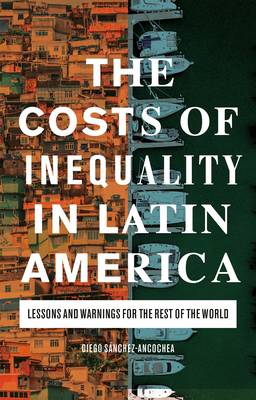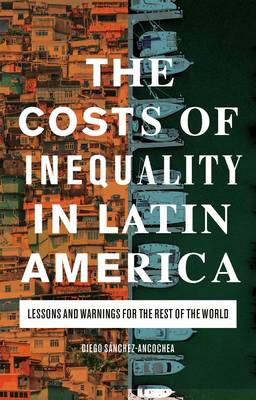
Bedankt voor het vertrouwen het afgelopen jaar! Om jou te bedanken bieden we GRATIS verzending (in België) aan op alles gedurende de hele maand januari.
- Afhalen na 1 uur in een winkel met voorraad
- In januari gratis thuislevering in België
- Ruim aanbod met 7 miljoen producten
Bedankt voor het vertrouwen het afgelopen jaar! Om jou te bedanken bieden we GRATIS verzending (in België) aan op alles gedurende de hele maand januari.
- Afhalen na 1 uur in een winkel met voorraad
- In januari gratis thuislevering in België
- Ruim aanbod met 7 miljoen producten
Zoeken
The Costs of Inequality in Latin America
Lessons and Warnings for the Rest of the World
Diego Sánchez-Ancochea
Paperback | Engels
€ 55,95
+ 111 punten
Uitvoering
Omschrijving
From the United States to the United Kingdom and from China to India, growing inequality has led to social discontent and the emergence of populist parties, also contributing to economic crises. We urgently need a better understanding of the roots and costs of these income gaps. The Costs of Inequality draws on the experience of Latin America, one of the most unequal regions of the world, to demonstrate how inequality has hampered economic growth, contributed to a lack of good jobs, weakened democracy, and led to social divisions and mistrust.
In turn, low growth, exclusionary politics, violence and social mistrust have reinforced inequality, generating various vicious circles. Latin America thus provides a disturbing image of what the future may hold in other countries if we do not act quickly. It also provides some useful lessons on how to fight income concentration and build more equitable societies.
In turn, low growth, exclusionary politics, violence and social mistrust have reinforced inequality, generating various vicious circles. Latin America thus provides a disturbing image of what the future may hold in other countries if we do not act quickly. It also provides some useful lessons on how to fight income concentration and build more equitable societies.
Specificaties
Betrokkenen
- Auteur(s):
- Uitgeverij:
Inhoud
- Aantal bladzijden:
- 216
- Taal:
- Engels
Eigenschappen
- Productcode (EAN):
- 9781838606237
- Verschijningsdatum:
- 10/12/2020
- Uitvoering:
- Paperback
- Formaat:
- Trade paperback (VS)
- Afmetingen:
- 140 mm x 216 mm
- Gewicht:
- 254 g

Alleen bij Standaard Boekhandel
+ 111 punten op je klantenkaart van Standaard Boekhandel
Beoordelingen
We publiceren alleen reviews die voldoen aan de voorwaarden voor reviews. Bekijk onze voorwaarden voor reviews.









